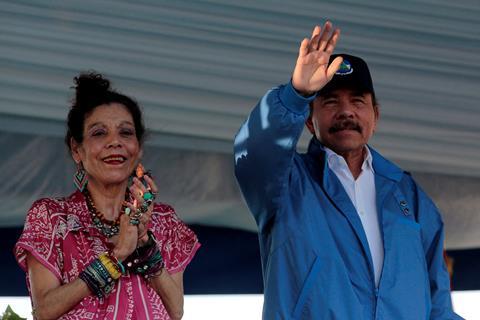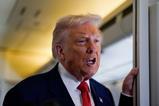Christians in Nicaragua are being subjected to a disturbingly routine suppression by their government – yet, as Ellis Heasley reports, the Church remains committed to voicing its faith

This Easter the Nicaraguan government, led by President Daniel Ortega and his wife Rosario Murillo, prohibited both Protestant and Roman Catholic churches across the country from holding public processions and other religious activities.
Religious leaders were warned not to go outside, use fireworks, or mention exiles or political prisoners in their prayers and sermons, and some churches reported to us at Christian Solidarity Worldwide (CSW) that they had multiple police vehicles – in some cases carrying riot police – stationed outside their buildings for the duration of key Easter celebrations such as the Via Crucis, or the Way of the Cross.
Crackdown
The government’s efforts were not particularly surprising to CSW. This year Good Friday fell on the same day as the anniversary of peaceful, nationwide protests that spread across Nicaragua in April 2018 in response to government modifications to the pension system that were ultimately met with violent repression and marked the start of a severe crackdown on civil society and religious groups that has been intensifying ever since.
Last year, for example, CSW recorded 222 separate violations of freedom of religion or belief (FoRB), some of which affected thousands of people. The arbitrary cancellation and/or prohibition of religious events, activities or services – as observed over the Easter weekend – has long been one of the most commonly reported violations, and in some cases even activities that are not explicitly religious have been targeted, as was the case for the congregation of San Miguelito Church in Rio San Juan, who in October were ordered to shut down a bake sale that had been organised to help raise funds for repairs to the church’s roof.
Many church leaders have bravely spoken out against the government’s repression
The reason for the government’s hostility to such groups is largely a response to criticism it received from religious leaders over its initial crackdown on human rights following the April 2018 protests. As a Christian human rights defender who has been kept anonymous for their own security explained to CSW, ‘April 2018 marked the awakening of our desire for justice, a fight for democracy, and for most of us, this battle continues based on Christian values.’
Why religious leaders are targeted
Many church leaders have bravely spoken out against the government’s repression, in many cases inviting consequences ranging from harassment to arbitrary detention to forced exile. Preaching about unity or justice – themes one might very much expect to hear from the pulpit – is considered criticism of the government and therefore treated as a crime, with informants placed in congregations to report on the content of sermons and prayers, while more recently the regime has started to impose what it refers to as ‘precautionary measures’ on leaders it perceives as a threat. Said ‘precautionary measures’ require them to report to a specific local police officer on a weekly basis, to have their photo taken and to submit plans for their weekly activities.
The crackdown extends far beyond the church too, with the government having forcibly shut down over 5,500 independent civil society organisations since April 2018. The organisations affected formed a key part of Nicaragua’s social fabric, in many cases providing programmes and services that benefitted thousands of men, women and children across the country. Again, to the Nicaraguan government such efforts are essentially viewed as criticisms of its own inability to support its citizens, which, of course, it refuses to accept.
The regime is also just as petulant on the international stage. In February this year it announced its withdrawal from the United Nations Human Rights Council (UNHRC), just one day after a group of human rights experts on the country published a report that concluded that the Ortega-Murillo government has “systematically carried out serious human rights violations” in its mission to “entrench absolute control.” This was an echo of its November 2021 withdrawal from the Organisation of American States (OAS), just one week after the OAS General Assembly adopted a resolution finding that the country’s most recent presidential elections had “no democratic legitimacy.”
A Church that won’t be quiet
But no matter how hard it tries to silence any and all criticism of its human rights record – whether from within the country or from respected international bodies – the Ortega-Murillo regime will not succeed in hiding the truth, and ultimately its desperate efforts to do so reveal what it fears most.
“Our nation is imprisoned but not silent,” added the aforementioned human rights defender. “The terrorist government still fears us because [of] our voice — the voices of believers in Christ — are our weapons. Every day, they impose new laws in order to deny our voices, but despite the fear, my people attended church. We continue to inform and resist.”
Those of us outside the country must amplify these voices at every opportunity, seeking out those forced into exile, telling the stories of those still imprisoned, and refusing to be deterred by the Nicaraguan government’s outright denial of the egregious human rights violations it is responsible for.






































No comments yet